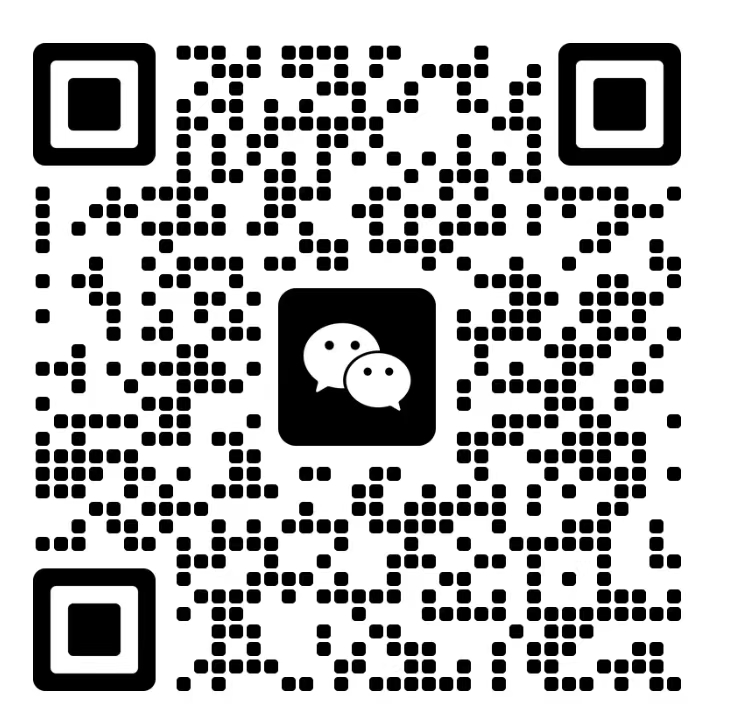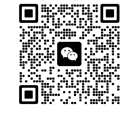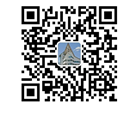Please scroll down to the bottom for the English version-Harnessing potential in smart technologies and artificial intelligence in the workplace: Managerial strategies for co-existence and enhanced productivity
随着智能技术、人工智能、机器人和算法(Smart Technologies, Artificial intelligence, Robotics, and Algorithms, STARA)的飞速发展,它们不仅改变了人们的生活方式,也正在重新定义人们的工作方式。
高新技术的迅猛发展让职场上的不少打工人都觉得自己有可能成为人工智能技术的牺牲品,会产生“AI焦虑”,甚至因为AI产生工作倦怠。打工一族如何与AI共存?詹姆斯库克大学新加坡校区的一项最新研究给管理者们带来了除了培训之外,不一样的答案!

詹姆斯库克大学新加坡校区的商科讲师Dr Kim-Lim Tan所主导的最新研究,揭示了智能科技如何在酒店业中重塑工作方式,以及管理者在塑造员工体验和提升生产力方面的关键作用。
该研究还通过预测分析提出了一系列管理策略,帮助雇主更好地利用智能技术、人工智能、机器人和算法(Smart Technologies, Artificial intelligence, Robotics, and Algorithms, STARA)在工作场所中的潜力,培养员工对创新更为接受的态度。

Dr Kim-Lim Tan
詹姆斯库克大学新加坡校区商科讲师
01
重视智能科技对生产力的提升
研究人员强调,鉴于酒店业在国家经济中的重要性,因此了解如何有效利用STARA来对酒店业员工进行支持,提高效率和竞争力,最大化他们的生产力,尤为关键。
有关研究方向,Dr Kim-Lim Tan解释道:“尽管许多早期研究强调了这些高新技术创新能够带来一些负面影响,例如更容易感到工作倦怠或产生更高的离职意愿,但我们的研究采用了不同的角度。我们着重研究员工如何与STARA共处,并利用它来增强工作效率。毕竟,无论我们是否喜欢,STARA都已经成为一种必然,将继续在企业中扮演越来越重要的角色。换句话说,我们的研究旨在探索STARA与个人心理层面的连接。”
02
通过挑战-阻碍框架揭示员工心理需求
Dr Kim-Lim Tan表示其研究旨在理解连接STARA和个人利益的心理机制。为了实现这一目标,研究人员采用了挑战-阻碍框架。
当员工面临新的工作情境,如引入STARA时,可能会触发两种主要情绪反应。一种是员工可能把STARA视为“挑战”,提供了提高生产力和学习新技能的机会。另一种是他们可能将其视为潜在威胁(例如失去工作自主权),即阻碍。因此,管理者自然希望促进将STARA视为“挑战”而非阻碍的观点。

概念模型
团队进一步研究了挑战-阻碍视角是否支持或削弱了员工对自主权、能力和关联性的基本心理需求。
虽然一些早期的研究已表明STARA满足了员工对管理工作需求更多自主权的需求,但缺乏实证支持。Dr Kim-Lim Tan的这项研究是首次探索这些附加维度是否有助于培养“挑战”视角,促进STARA与员工的共处,并最终营造一个高效的工作环境。
03
管理者的关键积极作用及相关建议
研究结果强调了管理者在引导工作场所中整合STARA方面的积极作用。这意味着管理者在帮助员工正确看待和应对STARA时起着关键作用。
Dr Kim-Lim Tan表示:“归根结底,我们认为管理者应营造一个积极的环境。在这种积极环境中,人工智能之类的STARA会被员工们视为成长的机会,而非威胁。
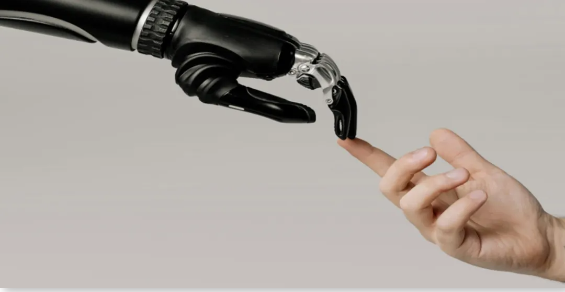
该研究的关键发现还总结出以下对管理者的建议:
鼓励对STARA持积极看法: 管理者应营造一个鼓励对新技术(如人工智能)持积极态度的工作环境,将其呈现为个人和专业成长的机会。通过倡导这种观点,管理者可以培养员工的工作满意度和绩效水平。
创建支持性工作环境:管理者应关注满足员工对关联性和能力的需求的举措。这可能包括促进协作,提供技能发展机会,认可员工的适应努力。例如,管理者可以提供支持和资源,帮助员工应对新技术的引入,包括情感支持、开放沟通、知识分享平台和同行协助。
实施认可和奖励: 管理者应承认并奖励在适应上表现优异的员工,以强化他们与STARA相关的能力感。这种认可不仅可以增强员工的能力感,同时也可以帮助管理者寻找到值得被晋升的员工。这不仅激励员工接受与STARA相关的职业道路,还可以培养积极的观点,鼓励他们接受新技术。
这些研究结果为酒店业管理者提供了重要启示,指导他们在工作场所中成功整合智能科技,创造更高效、更具创新力的工作环境,进而提升行业竞争力和员工满意度。
想要更加深入了解该项研究
如何更有效地帮助员工与新技术共事?
👇下方由Dr Kim-Lim Tan带来的独家讲座别错过
聚焦研究系列讲座
Research Spotlight Series
#2
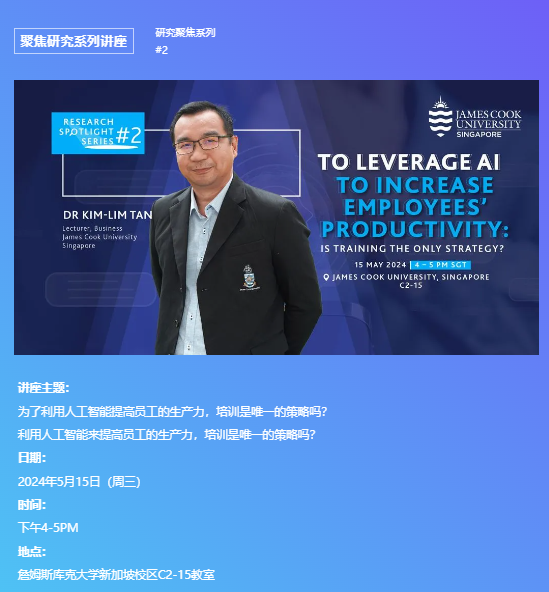
讲座主题:
To leverage AI to increase employees’ productivity, is training the only strategy?
利用人工智能来提高员工的生产力,培训是唯一的策略吗?
日期:
2024年5月15日(周三)
时间:
下午4-5PM
地点:
詹姆斯库克大学新加坡校区C2-15教室
*文中部分图片来自网络,版权归原作者所有
**文中部分内容来自论文,版权归论文作者所有
对这篇论文感兴趣的同学,可使用詹姆斯库克大学线上图书馆“One Research”功能搜索论文标题进行免费查阅
Kim-Lim Tan, Gabriel C. W. Gim, Ivy S. H. Hii & Wenqian Zhu (2023) STARA fight or flight: a two-wave time-lagged study of challenge and hindrance appraisal of STARA awareness on basic psychological needs and individual competitiveness productivity among hospitality employees, Current Issues in Tourism, DOI: 10.1080/13683500.2023.2224550
素材来源于网络,如有侵权请联系删除。
【END】 看到这里你有没有一点动心~Oh~有没有一点点动心~ 详情可咨询相关老师哦 ⬇ 招生官 周老师:19313581285 扫码获得更多精彩


